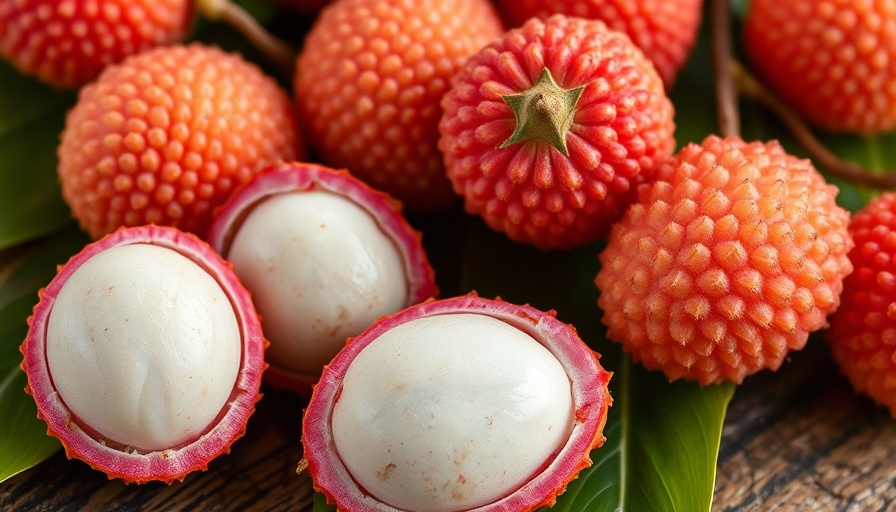
Understanding Lychee: Delicacies and Dangers
Lychee, a fruit beloved for its sweet, fragrant flavor, is not just a culinary delight but also comes laced with important health considerations. While lychee fruits are cherished in many cultures for their taste, there remains an unsettling link between them and a serious condition known as hypoglycemia-related encephalitis, particularly affecting children in regions where lychees are abundantly harvested.
Revealing the Mystery: The Connection Between Lychees and Health Risks
The concern arises from a toxin present in unripe lychee fruit—methylene cyclopropyl-glycine. This toxin can severely interfere with the body's ability to maintain stable blood sugar levels. In malnourished children, who often have depleted energy stores, consuming large quantities of lychee can lead to dangerously low blood sugar episodes overnight. Such occurrences have been noted in areas like India and Vietnam, coinciding alarmingly with lychee harvest periods. Children, who may feast on the fruit, suddenly suffer debilitating symptoms, which can even result in death in severe cases.
The Cultural Significance Versus Health Threats
While it is critical to acknowledge the potential dangers associated with lychee consumption, it is also important to appreciate its cultural significance and health benefits when eaten judiciously. Rich in vitamin C and powerful antioxidants, lychee has been associated with a host of positive health effects, as observed in various studies. However, the delicate balance between enjoying this exotic fruit and mitigating the associated risks must be well understood, especially for vulnerable populations such as children.
Decision-Making: How Many Lychees Are Too Many?
For most healthy adults, moderate consumption of lychee fruit can be part of a nutritious diet. Yet, experts recommend limiting intake for children, especially in areas where they might be malnourished or where proper medical care is inaccessible. The risks associated with overindulging in lychee may not be fully applicable to every individual, emphasizing the need for awareness and educational initiatives in agricultural communities.
Empowering Consumers: Tips for Safe Lychee Consumption
Here are a few helpful guidelines to consider when enjoying lychee:
- Limit consumption: Moderation is key. Enjoy lychees as part of a varied diet that includes plenty of other fruits and vegetables.
- Opt for ripe fruit: Ensure lychees are fully ripened before consumption; unripe fruit should be avoided.
- Stay informed: Understanding the signs of hypoglycemia can help prevent any serious health issues.
Embracing a Balanced Approach
While lychee is delicious and nutritious, being aware of its potential risks is paramount, especially for young children and those with pre-existing health conditions. Engaging with local health organizations and dietary guidelines can foster a balanced dietary approach that incorporates a variety of foods. Education can empower communities, ensuring that both the taste and potential risks of lychee are well understood.
Take Action for Health Awareness!
Next time you bite into a lychee, remember the story behind its flavor. Dive deeper into your food choices, understand their impacts, and share this knowledge with your peers. Promoting healthy eating habits can lead to longer, healthier lives for everyone. Encourage your community to stay informed about what they eat!
 Add Row
Add Row  Add
Add 




 Add Row
Add Row  Add
Add 

Write A Comment